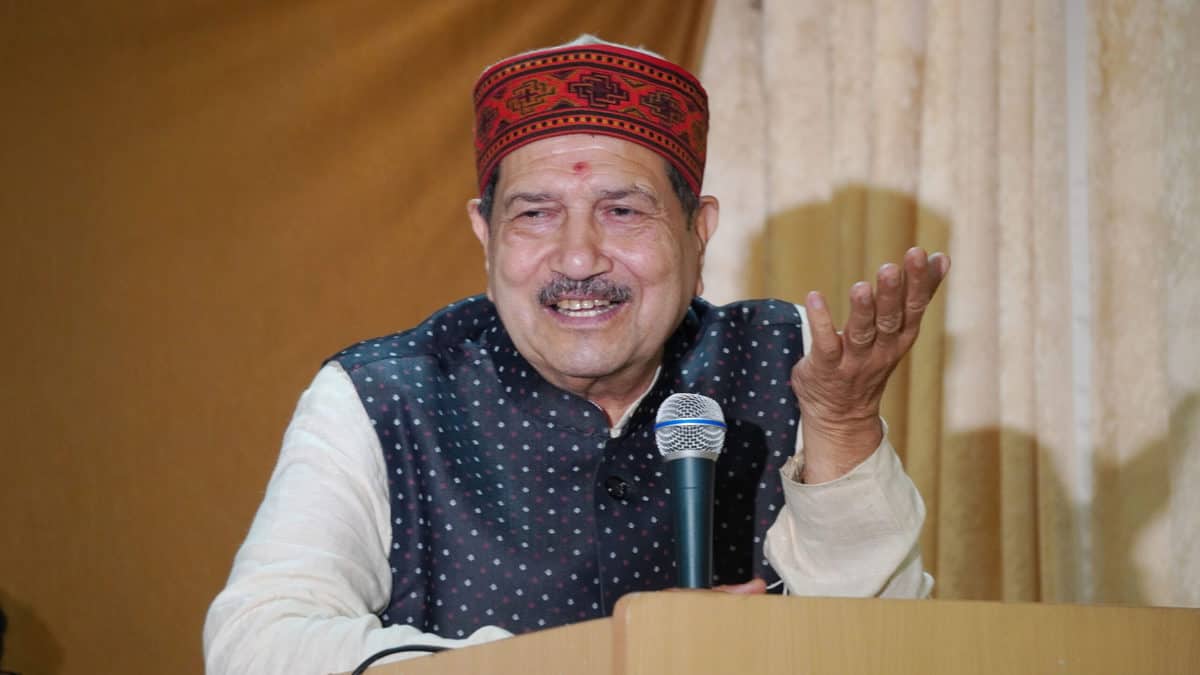
New Delhi: RSS chief Mohan Bhagwat, senior Sangh leaders Indresh Kumar, Krishna Gopal and Ram Lal have been regularly holding interactions with Muslim intellectuals for some time now.
Recently, a new episode of these interactions was witnessed in the national capital in which India, and along with over 10 Muslim countries, began a fresh campaign in the biggest ever non-governmental exercise. In this, unity in diversity, harmony, cooperation, education, culture, literature, coordination, religious restraint and respect and trade have been emphasised.
Under the joint aegis of the Himalaya Hind Rashtra Group, Forum for Awareness of National Security (FANS) and School of Language Literature and Culture Studies, Jawaharlal Nehru University (JNU), a two-day international seminar was held at the Convention Centre of JNU on the topic of historical, cultural and economic links between India and Central Asia.
A large number of Muslim intellectuals participated in the meeting.
Diplomats, high commissioners, scholars and intellectuals from at least 12 Muslim countries participated in the international seminar at the JNU under the leadership of senior RSS leader Indresh Kumar.
Those who attended included Iraj Elahi from Iran, Firat Sonal from Turkey, Lukmon Baba Kolajdeh from Tajikistan, Nurlan Zalgaisbaev and Habibullo Mirzozoda from Kazakhstan, Asin Isaev from Kyrgyzstan, Dilsod Akhmatov and Aziz Bartoun from Uzbekistan, Shalar Geldinjarov from Turkmenistan, Ganbold from Mongolia. Dambajav, Armen Martirosyan from Armenia, Farid Mamundzai from Afghanistan and Ashraf Shikhaliyev from Azerbaija.
The foreign participants during their speech underlined that “India, as our elder brother should play the role of Vishwaguru”.
On this, Indresh Kumar said: “Our concept of Vasudhaiva Kutumbakam is to treat everyone as a family. India is a country full of diversity.”
Ambassadors, High Commissioners and representatives of more than 50 participants of 12 countries demanded that a mission document, which can also be called a vision document, be prepared on the entire programme under the leadership of leader Indresh Kumar.
In the seminar, Subhas Sarkar, Union Minister of State for Education; Iqbal Singh Lalpura, Chairman, National Commission for Minorities; Indira Gandhi Kala Kendra Secretary, Sachidanand Joshi; General Secretary of Rashtriya Suraksha Jagran Manch, Golok Behari and Convener of International Seminar, Prof. from Jamia Millia Islamia M Mahtab Alam Rizvi also participated.
During an exclusive interview with IANS on the sidelines of the event, Indresh Kumar also spoke about some current issues.
IANS: How can we end terrorism?
Kumar: Terrorism is the enemy of peace, development, harmony and humanity. Bombs, ammo, shells, bullets or stones are not the solution to any problem. There is no place for anti-social things like terrorism and Maoism in any civilised society, so everyone should unite and strongly oppose it. The delegates said that they will not allow it to flourish in their countries and also appealed to the world that all countries should unite against terrorism.
IANS: Is religion becoming an issue in harmony?
Kumar: Criticising religion, religious scriptures, religious places, gods, goddesses, deities, prophets etc., creates violence and anarchy, which is condemnable. That’s why everyone should follow their own religion and not disrespect other religions, thus walking on the path of peace, unity, brotherhood and harmony.
IANS: Religious conversion is becoming an issue in society…
Kumar: The Chief Patron of the Forum for Awareness of National Security (FANS) said that it is necessary to stop religious conversions for world peace and development.
IANS: There was a buzz in the seminar that peace and harmony cannot be established with India. Would you elaborate on this?
Kumar: It was discussed in the seminar that the path of world peace and progress passes through Asia and peace and harmony cannot be established in the world without India. It was also agreed that in addition to the air route, mutual unity and integrity should be promoted through road and sea routes.
“Andhakar Mitayenge, Prakash Layenge” was also a collective voice that was heard in the seminar.
